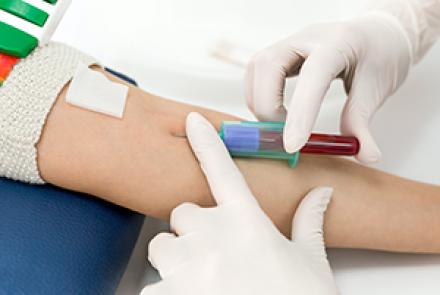12% of people with diabetes have major depression, and about 10 to 20% have minor depression.
In a new analysis, German researchers have found that reducing depressive symptoms does indeed help control blood glucose better and even increasing the probability of bringing HbA1C under to under 7.5.
According to study investigator Andreas Schmitt, PhD, a postdoctoral researcher at the Research Institute of the Diabetes Academy Mergentheim in Germany, it could be that the less depressed people are,…

With summer upon us, our body systems can go through various changes just like the outside temperature. With certain chronic conditions like diabetes, skin allergies, thyroid problems, the weather change can be even more bothersome with unwanted symptoms. Here are a few tips to best cope with the sizzling hot season.
Food tips for summer:
- Eat smaller meals through the day instead of fewer, heavy meals.
- Stay hydrated! Keep a bottle of water handy at all times and sip it through the day.
- To make water more interesting, add a slice of lemon, orange, or mint to it.
- Avoid sugary drinks and instead go for lemony drinks like fresh lemonade, lemon barley, etc.
- Opt for foods that keep your digestive system cool & hydrated such as yogurt, cucumbers, melons, lettuce, celery etc. This is the best season to indulge in various fruits and salads.
- Gazpacho or cold soups made with colourful vegetables & herbs are wonderful lunch ideas.
- Wash, pre-soak & chill your mango in the fridge before consumption; this aids in easy digestion.
- Avoid fatty, fried and calorific foods that will make you feel bloated, gassy and lethargic.
- Store perishable foods like vegetables, fruits, baked goods, eggs etc. in the refrigerator as they are likely to spoil faster in the heat outside.
- Choose green tea instead of masala chai as it helps improve metabolism.
- If you like your caffeine, then try cooler variations such as iced tea and cold coffee. Watch the sugar though.
Body and SkinTips:
- To prevent skin damage and burn, apply sunscreen with significant SPF when stepping out in the sun!
- Use an umbrella or a hat when walking out in the sun.
- Summer is the best time to get wet and burn calories while swimming.
- Wear sunglasses when out to avoid sun damage and dry eyes.
- To prevent heat rash, wear loose cotton clothing, shower often and apply talcum powder.
- If you go for a run or walk, try to go early morning or later in the evenings. If possible, workout indoors in a gym.
- Get a good night’s sleep because your body will get more fatigued due to the heat.
- Dandruff is usually more aggravated in the heat, so use an anti-dandruff shampoo and keep hair clean.
- Heat and sun can lead to hair damage, so avoid use of hairdryers and straighteners.
- Excessive sweating can cause bad body odor, so use talcum powder or anti-perspirants.
For people with diabetes:
- Dehydration is a common side-effect of heat and high glucose levels. This is because increased blood sugar can cause more urine output. So remember to drink lots of water.
- Avoid caffeinated drinks because they are diuretics (substances that promote urine formation). Try sugar-free fluids like lemonade and iced tea.
- Avoid alcohol as it is a diuretic and interferes with the body’s mechanism to regulate temperature.
- Check your blood sugar levels more often during hot summer days or if you have been out in the heat.
- Overheating is a serious condition. Also applicable for those with chronic heart condition. Look out for dizziness, fainting, headaches, profuse sweating, fast heartbeats, nausea and cold/clammy skin with goose bumps. If you experience any of these symptoms, go to a cool/shady place, drink fluids like water or lemonade and call your doctor.
- If you do gardening or exercise outdoors, plan such activities either early morning or later in the evenings.
- Store your insulin in a refrigerator at 3-8oC. Insulin is very sensitive and should not be used if it has been exposed to direct sunlight, extreme hot or cold temperatures.
- If you are on an insulin pump, sweating can cause the pump adhesive on your skin to become loose. Use anti-perspirants, benzoin tincture, adhesive barrier prep wipes like Skin Tac-H or a medical liquid adhesive on the skin.
For thyroid patients:
- One of the symptoms of thyroid disease is heat intolerance because your body in unable to adjust the internal thermostat. So stay cool and indoors during those hot summer days.
- If you experience symptoms of feeling flushed, hot, anxiousness, or uneasiness, make sure to get your thyroid levels tested so as to check for any fluctuations in your thyroid panel. If so, your doctor can adjust your medication dose accordingly.
- Sleeplessness and anxiety can affect the functioning of the thyroid gland. To ensure a good night’s sleep during summer, keep your bedroom cool (invest in an air cooler or air conditioner), use cotton bed sheets, have a cold shower before bedtime, keep bed sheets in the refrigerator for a few minutes to cool them, or invest in a cooling pad.
- Vitamin D deficiency has recently been shown to contribute autoimmune thyroid conditions. Summer is the best time to soak up some Vitamin from direct sunlight. The optimal time for this is sunlight between 11am to 2pm for 20-30 minutes, three times a week. Those with darker skin require more time, while those with fair skin only need 20 minutes.
- Skin and scalp can get itchy and dry during summer. So remember to stay hydrated, avoid too much sunlight and use a mild moisturizer or use oil to massage the scalp and body. Also applicable if you have a Skin Condition
Changed
23/Apr/2018
Condition













